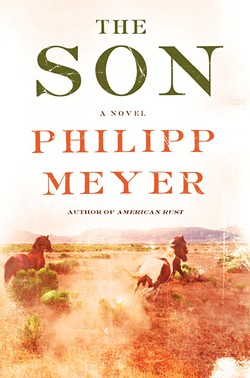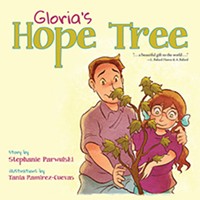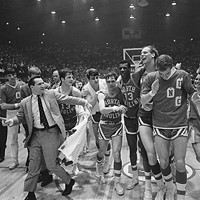Book review: Philipp Meyer's The Son
Compelling novel depicts a brutal, unforgiving West
By Erik SpanbergWhen it comes to research and preparation, Philipp Meyer is to novelists what Daniel Day-Lewis is to actors: obsessive and relentless.
For his second book, The Son, Meyer drank buffalo blood, tanned animal hides and shot antique guns, according to a recent profile in The Wall Street Journal. All of his first-hand experiments, along with reading what Meyer estimated to be 350 books on Texas, Indians and the Old West, fueled his multigenerational epic.
The resulting novel tells the story of the McCullough family, tracing a history that begins in 1811. There's Eli, a second-generation son born in 1836, the same year Texas becomes a Republic; Peter, the disillusioned son of Eli; and Jeanne, Peter's granddaughter. Between them, they bring the violence and greed of various eras to vivid life. Border wars with Mexico spurred by cattle ranching, the onset of the Civil War and the wildcatting boom-and-bust cycles of Big Oil cross paths as the narratives shift back and forth.
Eli's memories, recounted in interviews with a WPA-era archivist in 1936, when he's 100, combine charm and blunt trauma.
"I am not dying a Christian though my scalp is intact and if there is an eternal hunting ground, that is where I am headed," Eli says. "That or the river Styx."
Meyer's Western novel has been compared to the work of both Cormac McCarthy and Larry McMurtry. Like McCarthy, Meyer depicts a brutal, unforgiving land and its people, and, like McMurtry, he strips away Hollywood mythology of cowboy glory in favor of grimmer realities.
Comanches kidnap Eli when he is 13, massacring the rest of his family but allowing him to live after he survives a rite of passage: drinking buffalo blood.
"The blood turned in my gizzard," Meyer writes in the voice of Eli. "I had always thought blood tasted like metal but that is only if you drink a small amount. What it actually tastes like is musk and salt."
Take the author at his word and, of course, his local knowledge.
Eli eventually returns to white society as the Comanches and other tribes are dying off and being cheated and overrun. He becomes a Texas Ranger and, later, profits from the Civil War and other adventures to become a wealthy rancher.
Peter, one of Eli's three sons, resents the cruelty of his father's rise. An unjustifiable raid and massacre of a Mexican rancher and his family makes Peter angry and depressed. His granddaughter, Jeanne, proves indomitable, similar to Eli.
Another McCullough fortune balloons in contemporary Texas, the result of Jeanne's single-minded focus.
Meyer writes with a harsh beauty, reflecting the place and times he describes. And, as the buffalo-blood example shows, he insists on getting the details right, from flowers and plants ("We were on a rolling grassland thick with asters and primrose, ironwood and red poppy") to the nuances of tribal customs like arrow-making ("The best feathers for fletching were turkey feathers ...").
Peter McCullough stands in contrast to his father. He has grown up in isolation and affluence. Eli McCullough exhibits a kill-or-be-killed ethos for obvious reasons; Peter, frustrated by the constraints and corruption of the family fortune, abhors all of it. And, in tragic fashion, he falls in love with the lone survivor of a family murdered by a McCullough-led posse.
Though the rich banter and bickering of McMurtry's Gus McCrae and Woodrow Call aren't to be found here, Meyer does provide some much-needed humor. Among the Indian names handed down by tribe members: Tried to Fuck a Mare, Hates Work and Cock That Stays Hard Forever. Try finding those on The History Channel.
Betrayal and violence loom over all that occurs inside the family and out. Bribes and political patronage help the rich get richer, keep the working class subjugated and, much like Faulkner's Yoknapatawpha nouveau riche, leave all concerned dispirited. But not in such clinical terms. Meyer makes his characters live and breathe and agonize. Most importantly, he keeps the pages turning with the unique voices and near-constant sorrow of each generation. Still, the story avoids wallowing in despair, lifted by crisp action and well-rendered landscapes.
Meyer's terrific novel satisfies and sustains literary aspirations and good old-fashioned storytelling demands throughout the course of nearly two centuries and 600 pages.
Jeanne, nearing 90, brings the story into the 21st century with a fitting, bitter end that combines a dramatic flourish with the unresolved conflicts haunting the family, and all of us, since time began.
The Son
by Philipp Meyer
(Ecco, 576 pages, $27.99)
Speaking of...
-
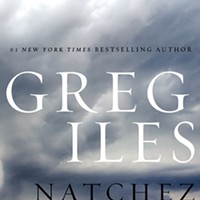
Book review: Natchez Burning
Jul 2, 2014 -
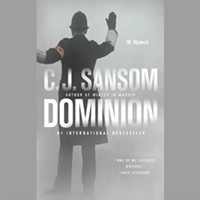
Book review: Dominion
May 16, 2014 -
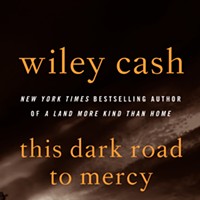
Book review: Wiley Cash's This Dark Road to Mercy
Mar 21, 2014 - More »
Latest in Books
More by Erik Spanberg
-

Book review: Natchez Burning
Jul 2, 2014 -

Book review: Dominion
May 16, 2014 -

Book review: Wiley Cash's This Dark Road to Mercy
Mar 21, 2014 - More »
Calendar
-

WHISKEY TASTING: VIRGINIA HIGHLANDS WHISKY @ Elizabeth Parlour Room
-

NEW WINDOW GALLERY-Pat Rhea-ACRYLIC PAINTINGS-April 05-30 2024 VALDESE, NC 28690 @ New Window Gallery/Play It Again Records
- Through April 30, 12 p.m.
-
An Evening With Phil Rosenthal Of "Somebody Feed Phil" @ Knight Theater
-
Kountry Wayne: The King Of Hearts Tour @ Ovens Auditorium
-
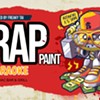
Trap & Paint + Karaoke @ Zodiac Bar & Grill
-
Susan Brenner Examines Upheaval While Celebrating Trees
Chaos and beauty
-
Jessica Moss Makes the Gantt Center a Safe Zone for Local Artists 2
Flipping the script
-
Breaking the Moon musical brings light to dark side 12
A Teenie Galaxy

